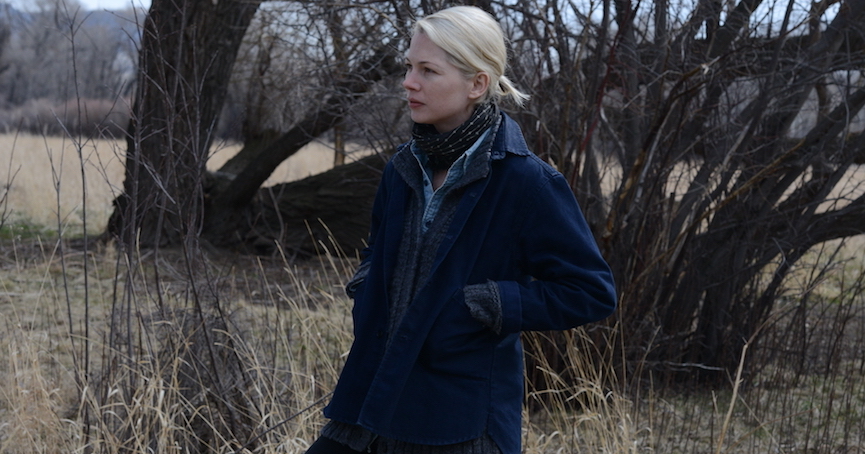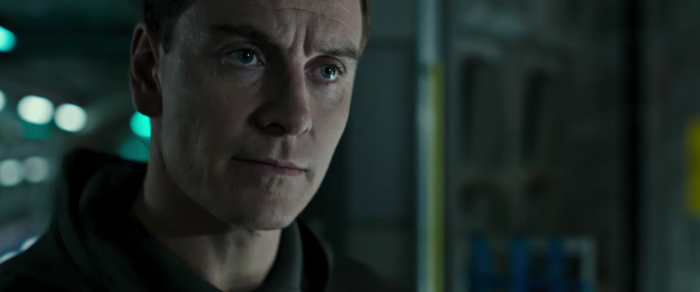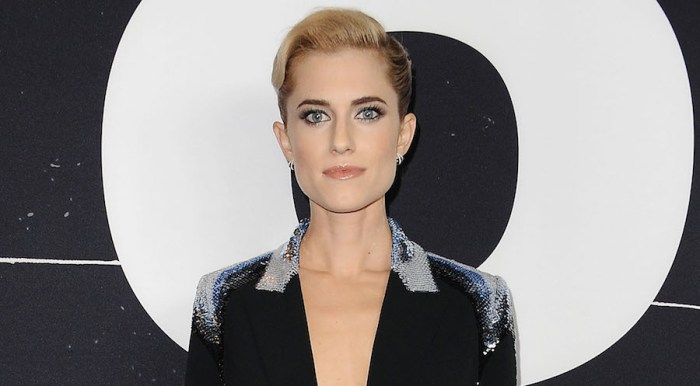We’ve already done a run-down of the New York Film Festival, which runs from Sept. 30 through Oct. 16. But here’s what we thought of each of the films playing during the first week. We’ll be back next week for round two. ‘Abacus: Small Enough to Jail’ RELATED: Interview: Meet Sasha Lane, the young, chill star of “American Honey” ‘Certain Women’ ‘I Called Him Morgan’ ‘I, Daniel Blake’ ‘Manchester by the Sea’ ‘Moonlight’ ‘Neruda’ ‘Paterson’ ‘A Quiet Passion’ ‘The Rehearsal’ ‘13th’ ‘Toni Erdmann’ The New York Film Festival runs from Sept. 30 through Oct. 16. Visit the site for showtimes, tickets and more. Follow Matt Prigge on Twitter @mattprigge
The documentarian Steve James is chameleon. He can do long-form verité (“Hoop Dreams,” “The Interrupters”), biographies (“Life Itself”) and cine-essays (“No Crossover: The Trial of Allen Iverson”). His latest finds him doing topical journalism, telling the sad, dark story of what befell Abacus Federal Savings, a mom-and-pop bank operating out of NYC’s Chinatown, and the only federal institution that was prosecuted after the 2008 economic catastrophe. It was pure bunk, too, a case where the feds looked to make an example, but out of people who ran one of the most honest banks in the world. James spends enough time with CEO Thomas Sung and his family/employees that it’s not all facts and figures, showing the grind a years-long investigation can do to people who know they’re right. (Matt Prigge)
Movies with multiple stories tend to keep things small, but the events in the latest from Kelly Reichardt (“Wendy and Lucy,” “Meek’s Cutoff”) are so minor we don’t realize they’re momentous until they’re wrapping up. Even when a lawyer (Laura Dern) gets involved in a hostage situation with a wronged client (Jared Harris), it somehow seems mundane. Weaving stories by Maile Meloy, “Short Cuts”-style, Reichardt lets her episodes unfold organically, leaving in longeurs most movies elide. In tales about a woman (Michelle Williams) trying to buy sandstone from an old man (René Auberjonois) and another sketching the budding friendship between a lonely ranch hand (Lily Gladstone) and a frazzled night school teacher (Kristen Stewart), she manages to make slices-of-life you can groove on like a spacey piece of music. (M.P.)
“I Called Him Morgan” is an engaging exploration of the short, tumultuous life of jazz trumpeter Lee Morgan. From a young age, Morgan was a star of the legendarily cool Blue Note scene, and the documentary makes fine use of footage from the time and interviews with his contemporaries. Morgan’s drug problems could lead to a clichéd narrative, but he recovered, and director Kasper Collin doesn’t sensationalize his plight. Morgan’s common-law wife, Helen, was older and described herself as “sharp.” Unfortunately, her sharpness proved fatal: Lee began an affair, and at a 1972 show at a downtown club on a snowy night, Helen and the other woman were both in attendance. Helen impulsively shot her husband in a fit of jealous anger. Morgan “knew how to tell a story musically,” recalls saxophonist Wayne Shorter. The story here ends up being the stuff of film noir, and it’s tragic that Morgan didn’t live long enough to tell more of his own. (Abbey Bender)
For better and worse, the new Ken Loach film is a Ken Loach film. There will be righteously angry working class Englanders. There will be corny jokes. There will be at least two or three times when the plotting, by Loach’s longtime regular writer Paul Laverty, will turn so calculatedly grim you can only respond with a forehead-slap. And there will be times when you forgive the preachiness because Loach understands the down-and-out like no other. Here, an aging, ailing construction worker (comic Dave Johns) suffers through the labyrinth of England’s bureaucracy, making friends with a sparkplug single mom (Hayley Squires) in similarly dire straits. Mystifyingly, this all-too-typical entry scored this year’s Palme d’Or, which only makes it seem worse: you’re better off focusing on the little bits that kill, not the big moves that don’t. (M.P.)
You know that part in bad grieving dramas where there’s a sudden bit of comic relief, and all the characters chuckle then get back to being grossly sentimental and phony? “Manchester by the Sea” destroys that cliché at least 100 times. That’s to say it’s actually funny, and also never sentimental. The third film from Kenneth Lonergan (“You Can Count on Me,” “Margaret”) follows a grouchy Boston janitor (Casey Affleck) as he returns to his hometown to deal with the aftermath of a death in the family. His brother (Kyle Chandler) has suddenly died, leaving a sarcastic son (Lucas Hedges), a house and a busted boat. There’s also an ex-wife (Michelle Williams) he’d rather not see, for reasons that are far from the norm. What follows is an acutely observed look at the grieving process, the way painful memories suddenly pop up at the drop of a hat, the way men don’t like to talk about their feelings, especially if they’re from Massachusetts. That it’s also a laugh riot isn’t a contradiction; Lonergan has made one of the most honest films about dealing with death. And he did it while including, among other things, a fake garage rock band name for the ages. (M.P.)
Yes, believe the hype: The first film by Barry Jenkins since 2008’s “Before Sunrise”-y “Medicine for Moonlight” stormed the Telluride and Toronto film festivals, and rightfully so. Don’t dare call it a black “Boyhood,” even though it jumps through three stages in the life of Chiron, a kid from a Miami ghetto. We see him go from a shy boy to a bullied teen to a hard young adult who’s built his body to shut out the world. It could have been schematic, treating our hero as little more than a symbol for the modern black American experience. But it’s the moments of release and even surprise that put it over: a fatherly drug dealer (Mahershala Ali) teaching him how to swim; an unexpected gay hook-up on a beach under moonlight; a reunion with an old friend that forever taunts us to predict where it will go. (M.P.)
One of two wildly inventive anti-biopics in the fest by Chilean bomb-thrower Pablo Larraín — the other is the just-added “Jackie,” starring Natalie Portman as Mrs. Onassis — “Neruda” starts as the type that focuses only on a slither of a famous figure’s life. (In this case, it’s poet Pablo Neruda’s stint hiding in Chile’s underground before decamping for Europe.) But it’s just getting started. The film’s narrator is the official (Gael García Bernal) doggedly pursuing him, who, over the film’s furious, muscular, darkly funny course, betrays a fascination that’s equal parts obsessive and grudgingly admiring. He’s also a total fiction — a way for a political filmmaker to attempt to understand, even empathize, with the bad guy. Based on the wowed response to “Jackie” (we haven’t seen it yet), Larraín (“Tony Manero,” “No”) might be the most fascinating person making movies in 2016. (M.P.)
“She understands me,” says perpetually low-key poet/bus driver Paterson (Adam Driver) about his live-in girlfriend (Golshifteh Farahani). Jim Jarmusch’s latest wants you to understand it, too — to take it for what it is. What it is is a character study, tracking a week in the life of its low-ambition hero, who does next to the same thing every day and seems only mildly flabbergasted when something goes askew. Jarmusch’s most soothing film gets in his groove, letting you judge whether Paterson’s wasting his life or really living it. It’s more like the latter, and quietly slipped into its unhurried rhythms is one of the great portraits of an artist, even one in no rush or need to be called that. (M.P.)
Are you ready to laugh? Because Terence Davies’ Emily Dickinson movie is hilarious! Or it is for a while. That’s two kinds of surprises: Emily Dickinson is few’s idea of a rip-roaring good time, and nor is Davies, one of the great and most stubborn auteurs, known for melancholic, devastating memory pieces like “The Long Day Closes” and haunting lit adaptations, like “House of Mirth” and this year’s “Sunset Song.” (Though we can speak from experience that in real life he’s hilarious.)But the first half of “A Quiet Passion,” with Cynthia Nixon as the younger, then-spirited poet, gives Whit Stillman’s “Love & Friendship” a run for the title of year’s most droll costume saga, lousy with jot-down-able quips and banter. Of course, it’s all part of Davies’ cunning plan: The good times really don’t last, and once Dickinson’s friends and loved ones have parted for marriage or death, leaving her to herself, the movie takes a heartbreaking slide into its subject’s despair, bitterness and loneliness. It’s downright cosmic watching a movie that charts a life so marked by change, and where the shift in temper and tone is so dramatic. Along with “Sunset Song,” it’s is one of the year’s best films. (M.P.)
In 1999, New Zealand director brought us “Jesus’ Son,” an eccentric, playful and perfectly judged stab at Denis Johnson that captured a distinctive voice while bringing her own. Jump 17 years, and she finally got to make another movie. “The Rehearsal,” about a group of young drama students, doesn’t entirely make up for lost time, but it does remind you what a lively talent she is. No shot is tossed-off, and the smallest scenes are sometimes the best, using off-beat framing or even a specific shade of sky to convey character psychology. It also has a bland everyguy as a hero — a big comedown compared to “Jesus’ Son” hungry, goofy FH, brought to us by Billy Crudup’s finest screen performance. On the other hand, someone finally remembered Kerry Fox, as the troupe’s bitchy but warm teacher, is one helluva actor. (M.P.)
Ava DuVernay’s first film since “Selma” is a fiery, blistering documentary about the history — and the present — of racism in America, coming to the conclusion that it never went away; it just seeped under the surface of polite (or not) discourse. DuVernay’s job involves connecting the dots: slave laws that became laws targeting freed blacks; drug laws that changed to disproportionately affect black neighborhoods; slurs that morphed into dog whistles. A movie that digs deep into the prison state, “13th” takes no prisoners. It doesn’t even spare the Clintons, whose remorse over the still-devastating 1994 crime bill is acknowledged but not accepted. There are a lot of smart people saying smart things, even (holy crap) Newt Gingrich, who confesses laws punishing crack use more than coke were maybe unfair. After opening the New York Film Festival, DuVernay’s latest will invade Netflix; maybe your Fox News parents will even watch it. (M.P.)
These are surreal times, so add this to the pile: One of the year’s best and most accomplished films has the same basic plot as an Adam Sandler movie. Like “That’s My Boy” (one of his better/least awful ones, tbh), the latest from Germany’s Maren Ade (“Everyone Else”) tells of an eccentric father (Peter Simonischek) who tries to save his semi-estranged daughter (Sandra Hüller) from a workaholic life, then almost destroys it. It’s a broad, crowd-pleasing comedy, with a couple caveats: For one, it’s almost three hours long. For another, it’s still an art house grinder, leaving in all the rough edges. Anything can happen, and every now and then it does, yielding at least three of the year’s most memorable set pieces. Can a movie be narratively experimental, emotionally raw and gut-bustingly funny? Apparently! (M.P.)
What to see during the New York Film Festival’s first week

IFC Films


















